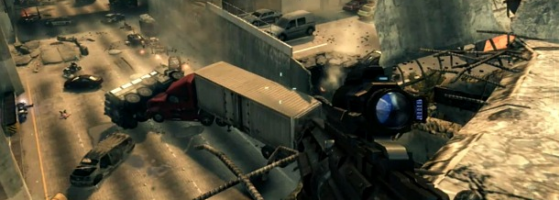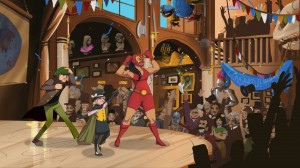Recently I had a fantastic conversation with game developer and streamer Dino Dini. For our almost two hours of talking, we discussed the state of modern game journalism and the problems with it. It’s time to pull the bandage off: Game Journalism in its current form is terrible, and it’s time to talk about why.
Qualifications:
We’ve talked about this first one before, but there is an issue with who’s qualified to speak about video games. Just how there are no standards for making a video game, there are no standards for being a game journalist. On Youtube or Twitch, there are a lot of people who talk about video games and have huge followings, but how many of them understand game development?
Just because you play a lot of video games or visit conventions doesn’t give you the qualification to represent game journalists. We talked about this on our cast, but it should be a given that someone who wants to consider themselves a professional should know about making games.
How many people who write or make videos about games can actually hold a conversation with a game designer? And I’m not talking about PR, but discussing the ins and outs of game design. One of the major failings of mainstream game sites is how they all take from the same pool of PR announcements.
When I get a PR email in my inbox, I know that at least three different sites will post the same exact news like clockwork.
The problem with Game Journalism in terms of qualification is that it’s hard to find people who could make the cut. If someone is knowledgeable on game development, chances are that they want to make games and not talk about it. So things should go the other way: If you want to be a professional game journalist, then you need to understand what goes into game development.
The last part for this point goes back to the issue of standards. Someone who is a professional should be able to talk critically about any game; even the ones they don’t like or have problems. If all you do is yell about games or insult the developers, then you are not a game journalist.
Media over Medium:
This next one is an interesting part of the Game Industry/Journalist relationship. The Game Industry is the only industry I can think of where the people covering it are more famous than the people in it. YouTube, Twitch and many sites have been built on a cult of personality. You can see this with the fandom of many popular YouTubers who now have sway over the Game Industry.
In response, many developers have to jump through hoops for game coverage. This goes far beyond just emailing someone to see if they have interest in their game, but having to negotiate terms and conditions to get their game covered.
It seems like most consumers know the people who talk about games rather than the ones who make them.
The problem is that it creates a market of people who simply use the medium for their own end. Clickbait articles and videos, rants disguised as reviews; the noise is drowning out the signal. Once again this raises a big problem: How do we fix it?
The Future of Video Game Journalism:
This is not an easy problem to fix. The examples of quality video game journalism are few in far between. Many people still see it as the “PR Speak” of the 80s and 90s. There should be more quality discussions if video games are supposed to be art.
The fact that game design still remains a mystery to a lot of consumers and students speaks volumes about the failure of modern video game journalism. I would like to say that I’m part of the solution, but I want to know: What do you think are examples of quality video game journalism?



